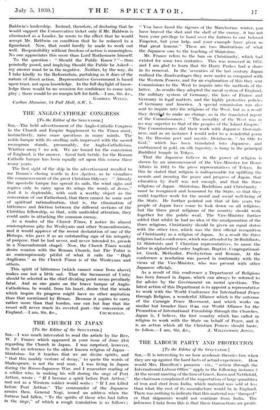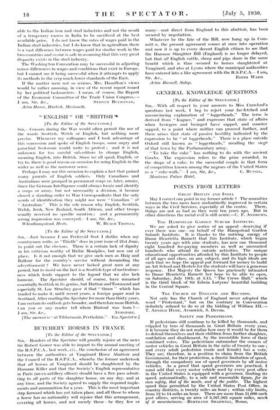• THE LABOUR PARTY AND PROTECTION
[To the Editor of the SPECTATOR.]
Stu,—It is interesting to see how academic theories fare when they are up against the hard facts of actual experience. How would Mrs. Hamilton's panacea—viz., " action through the International Labour Office" apply in the following instance ? At the recent meeting of the firm of Guest, Keen and Nettleton], the chairman complained of the importation of large quantities of iron and steel from India, which material was sold at less than what the cost of its manufacture would be in England. There was nothing to indicate that this material was "dumped" or that shipments would not continue from India. The inference I take from this is that these transactions are profit- able to the Indian iron and steel industries and not the result of a temporary excess in India to be sacrificed at the best available price. I do not know the rates of wages paid in the Indian steel industries, but I do know that in agriculture there is a vast difference between wages paid for similar work in the two countries and so one is safe in assuming that this very great disparity exists in the steel industry.
The Washing ton Convention may be successful in adjusting minor differences in wages and conditions that exist in Europe, but I cannot sec it being successful when it attempts to apply its methods to the very much lower standards of the East.
If the matter were not so serious, Mrs. Hamilton's views would be rather mousing, in view of the recent report issued by her political taskmasters— I mean, of course, the Report of the Economic Col lllll ittee of the Trade Union Congress.—











































 Previous page
Previous page